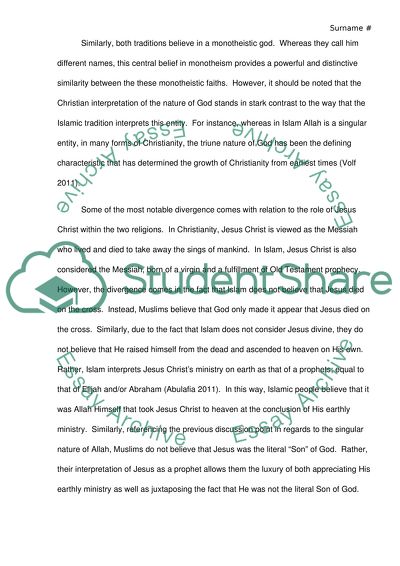Cite this document
(“A Comparison/Contrast Between Christianity and Islam Essay”, n.d.)
Retrieved from https://studentshare.org/sociology/1460510-a-comparisoncontrast-between-christianity-and-islam
Retrieved from https://studentshare.org/sociology/1460510-a-comparisoncontrast-between-christianity-and-islam
(A Comparison/Contrast Between Christianity and Islam Essay)
https://studentshare.org/sociology/1460510-a-comparisoncontrast-between-christianity-and-islam.
https://studentshare.org/sociology/1460510-a-comparisoncontrast-between-christianity-and-islam.
“A Comparison/Contrast Between Christianity and Islam Essay”, n.d. https://studentshare.org/sociology/1460510-a-comparisoncontrast-between-christianity-and-islam.


